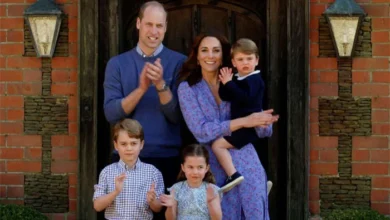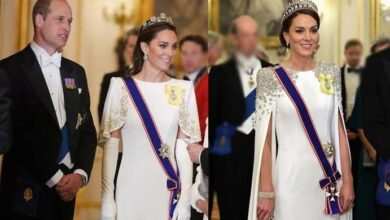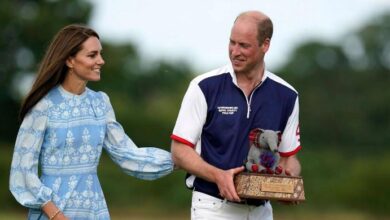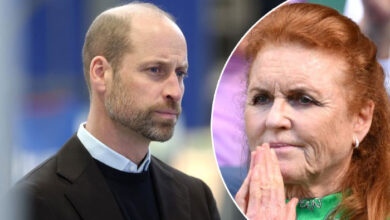Secret Files Exposed Spy Agencies Caught Recording Prince William in Shocking Royal Surveillance Plot
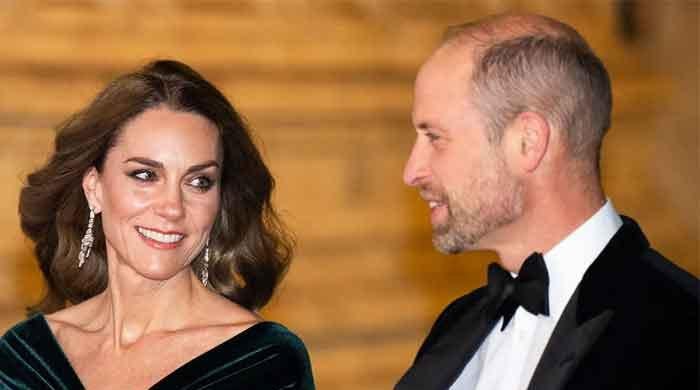
The British royal family has always been a subject of intense public fascination and scrutiny. Behind the scenes, however, security agencies have reportedly maintained a constant watch over their activities, conversations, and private moments. This ongoing surveillance is said to involve the use of modern espionage devices capable of listening in on private conversations.
Historical incidents reflect the extent of this clandestine oversight. Past scandals involving members of the Windsor family have exposed a level of surveillance that borders on intrusion, revealing how far intelligence agencies are willing to go to monitor the royal household. These breaches of privacy have raised questions about the boundaries of state surveillance and personal privacy.
Furthermore, it is believed that even the most intimate conversations of the royals have been recorded and archived. Such practices suggest a surveillance apparatus that treats the royal family as part of national security concerns, often at the expense of their personal privacy.
Veteran royal journalist and author James Whitaker shed light on these clandestine operations in his 1993 book, Diana Vs Charles. Whitaker’s detailed accounts provide insight into the modus operandi of agencies like MI5 and their relentless efforts to keep tabs on the royal family.
A security source cited in Whitaker’s work emphasized that MI5 views defending the realm as their primary duty. Their mission, as described, can lead to extreme measures, including intruding upon what should be considered private moments. Whitaker noted, “They are not answerable to anyone and are virtually a law unto themselves.”
One notable example involves a leaked conversation between Princess Diana and her girlfriend. This private exchange took place at Highgrove, the private country estate of the monarchy, during tense weeks leading up to Diana’s separation from Prince Charles. The content of this conversation highlights the level of intrusion into their personal lives.
During this particular discussion, Diana mentions her son Prince William’s interest in music. She even shares a light-hearted song he created, revealing a rare glimpse into the young royal’s creative side. The conversation underscores how personal moments were deliberately targeted by intelligence operations.
In her conversation with her friend, Diana recounts, “Did I tell you about William’s song?” and recalls William’s playful attempt at songwriting with lyrics like, “We all live in a yellow submarine, in a pub in Aberdeen, in a tub of margarine.” Such personal details illustrate the extent of surveillance into their private family life.
Diana’s openness about William’s musical endeavors offers a rare, humanizing glimpse of the young prince. It showcases how even the innocent moments of royal children are not immune to government eavesdropping. These revelations continue to spark debates over the ethics of spying on individuals, even those in the royal family.
The exposure of Princess Diana’s private conversations underscores a broader pattern of surveillance that has plagued the monarchy for decades. Many believe that such invasive practices are justified for national security, though critics argue they infringe on fundamental privacy rights.
This breach of privacy has historically been justified as necessary for protecting the realm from threats, both external and internal. However, the extent of spying, especially on private family matters, raises serious ethical concerns about the limits of governmental authority.
As modern technology advances, so does the capability for surveillance. Devices such as listening bugs, hidden cameras, and sophisticated audio recording tools have become standard tactics in intelligence operations, making privacy increasingly fragile for public figures and royals alike.
The controversial nature of such surveillance practices has led to ongoing debates among policymakers, civil rights advocates, and the public. Many question whether the invasion of privacy can ever be justified when it involves high-profile individuals like Prince William.
This issue extends beyond just the royal family; it reflects broader societal concerns about the balance between national security and personal privacy. The case of Prince William’s song lyrics is a poignant example of how even innocuous personal moments can become public knowledge through espionage.
In the digital age, the boundary between private and public has become blurred, with constant monitoring and data collection. The revelations about royal surveillance serve as a stark reminder of the potential reach of modern intelligence agencies.
In conclusion, the exposure of Prince William’s playful song lyrics due to a spy operation highlights the extensive, and often intrusive, surveillance conducted on the royal family. While ostensibly aimed at safeguarding national interests, such operations pose profound questions about privacy and human rights.
The ongoing debate about the limits of espionage continues to evolve as technology advances. The royal family’s experience underscores the importance of safeguarding personal privacy against overreach by powerful security agencies.
Ultimately, the story serves as a cautionary tale about the dangers of unchecked surveillance. As society grapples with these issues, it remains crucial to establish clear boundaries that protect individual rights while maintaining national security.
